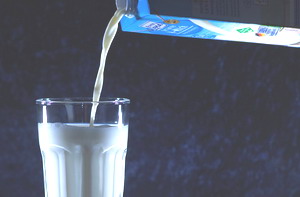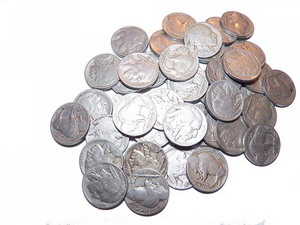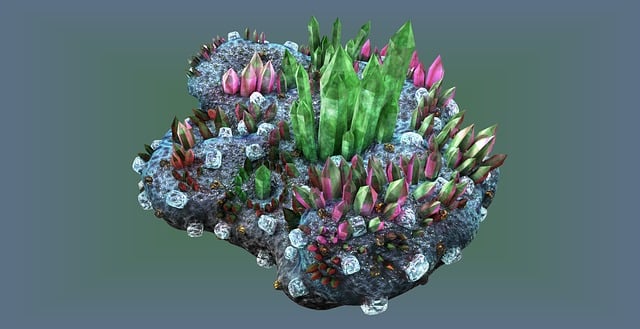A patient asked me the other day, What are trace minerals? With this question, I realized that I have never addressed this
 in my newsletters. Since we would all die without trace minerals, this may be an important topic to cover. So our first consideration is what distinguishes trace minerals from regular/macro minerals? Macro minerals like calcium, magnesium, sodium, chloride, sulfur, phosphorus, and potassium are needed in amounts like 400 mg to 7000 mg per day. The definition of trace minerals are minerals or elements that we need in amounts of 1 to 100 mg per day. To get a sense of size here, 100 mg looks like about 1/64th of a teaspoon. In other words, 5 mg per day is an amount so small you can hardly see it. in my newsletters. Since we would all die without trace minerals, this may be an important topic to cover. So our first consideration is what distinguishes trace minerals from regular/macro minerals? Macro minerals like calcium, magnesium, sodium, chloride, sulfur, phosphorus, and potassium are needed in amounts like 400 mg to 7000 mg per day. The definition of trace minerals are minerals or elements that we need in amounts of 1 to 100 mg per day. To get a sense of size here, 100 mg looks like about 1/64th of a teaspoon. In other words, 5 mg per day is an amount so small you can hardly see it.
What do trace minerals do? The tiny biological machines
 that make life happen are enzymes. Enzymes are structures made of protein-like amino acid Lego blocks all hooked together. Minerals attach to these structures to bend them into unique shapes and do specific jobs in the body. The most common trace mineral we are acquainted with is iron. Iron sits in the middle of the giant heme molecule and allows it to grab hold of oxygen from our lungs and carry it to our cells and tissues. Without enough iron, we end up with anemia and our body tissues don’t get enough oxygen to function well. The iron allows the heme molecule to grab oxygen tightly enough to pull it from the air in our lungs but loosely enough to release it into the cells once it is in our body. that make life happen are enzymes. Enzymes are structures made of protein-like amino acid Lego blocks all hooked together. Minerals attach to these structures to bend them into unique shapes and do specific jobs in the body. The most common trace mineral we are acquainted with is iron. Iron sits in the middle of the giant heme molecule and allows it to grab hold of oxygen from our lungs and carry it to our cells and tissues. Without enough iron, we end up with anemia and our body tissues don’t get enough oxygen to function well. The iron allows the heme molecule to grab oxygen tightly enough to pull it from the air in our lungs but loosely enough to release it into the cells once it is in our body.
So which are the main trace minerals/elements for the human body?
Iron Zinc Iodine Chromium
Copper Selenium Molybdenum
Boron Manganese Silicon
Vanadium Nickel Fluorine
Each serves multiple roles in the body, and a deficienc y of any produces various disease states. Trace minerals also tend to become toxic if you get too much of them in your body. Let’s touch on some of the specific roles and where each is found in our diet. y of any produces various disease states. Trace minerals also tend to become toxic if you get too much of them in your body. Let’s touch on some of the specific roles and where each is found in our diet.
Iron – as mentioned before, iron is essential for the formation of hemoglobin; the oxygen-carrying molecule in our re d blood cells. Without the oxygen hemoglobin carries to each cell, the formation of the energy needed to run everything would stop. The mitochondria would not be able to burn sugars and fats to produce the energy molecule for each cell called ATP. Iron is found in the diet in two forms, heme (from animal sources) and non-heme (from plant sources). The heme form is much better absorbed in our gut. For instance, spinach has a high amount of non-heme iron in it but almost none of it is absorbed by our body. Here is another interesting bit of information I found out. Calf liver has about 5 mg of iron per 31/2 oz, while chicken liver has about 13 mg for the same amount of liver. Vitamin C enhances the absorption of iron in the gut. d blood cells. Without the oxygen hemoglobin carries to each cell, the formation of the energy needed to run everything would stop. The mitochondria would not be able to burn sugars and fats to produce the energy molecule for each cell called ATP. Iron is found in the diet in two forms, heme (from animal sources) and non-heme (from plant sources). The heme form is much better absorbed in our gut. For instance, spinach has a high amount of non-heme iron in it but almost none of it is absorbed by our body. Here is another interesting bit of information I found out. Calf liver has about 5 mg of iron per 31/2 oz, while chicken liver has about 13 mg for the same amount of liver. Vitamin C enhances the absorption of iron in the gut.
Zinc – zinc participates in over 300 different enzyme reactions, so its effects are all over the place. It is essential for i mmune function, energy formation, DNA function, skin and nails, and just about everywhere. Without enough zinc, you can not taste or smell. Animal meats and seafood generally provide adequate zinc for your system. For vegans pumpkin seeds, hemp seeds, and wheat germ are good sources of zinc. Zinc competes with copper for absorption so avoid eating them together. mmune function, energy formation, DNA function, skin and nails, and just about everywhere. Without enough zinc, you can not taste or smell. Animal meats and seafood generally provide adequate zinc for your system. For vegans pumpkin seeds, hemp seeds, and wheat germ are good sources of zinc. Zinc competes with copper for absorption so avoid eating them together.
Iodine – the most important purpose for iodine in ou r body is the formation of our thyroid hormone, which regulates our cellular energy production as well as our growth and development from conception onward. This is especially important for brain development, and deficiency produces a type of mental retardation called cretinism. Iodine is available in seafood and from plants grown in iodine-rich soils, generally those near the ocean. This was a big problem in the US for the middle of the country as the soil has very little iodine. This was addressed by adding iodine to table salt. r body is the formation of our thyroid hormone, which regulates our cellular energy production as well as our growth and development from conception onward. This is especially important for brain development, and deficiency produces a type of mental retardation called cretinism. Iodine is available in seafood and from plants grown in iodine-rich soils, generally those near the ocean. This was a big problem in the US for the middle of the country as the soil has very little iodine. This was addressed by adding iodine to table salt.
Selenium – selenium’s biggest role in the body is in th e formation of glutathione; the main defense we have against free radical oxidation of our tissues. Selenium is also essential in activating the thyroid hormone by assisting in the splitting off of one iodine in the T4 hormone to make the active form of T3 in the thyroid hormone. Low selenium levels are associated with autoimmune diseases and other immune issues such as allergies and asthma. Selenium is best found in organ meats and Brazil nuts. e formation of glutathione; the main defense we have against free radical oxidation of our tissues. Selenium is also essential in activating the thyroid hormone by assisting in the splitting off of one iodine in the T4 hormone to make the active form of T3 in the thyroid hormone. Low selenium levels are associated with autoimmune diseases and other immune issues such as allergies and asthma. Selenium is best found in organ meats and Brazil nuts.
Chromium – chromium’s primary role is to make insulin work better. Adding extra chromium does not make dia betes or insulin resistance any better. As with most trace minerals, the levels in the soil determine how much chromium is in the plant material. Deficiency is usually only seen in people fed through a tube or port when the nutrition formula does not have chromium. betes or insulin resistance any better. As with most trace minerals, the levels in the soil determine how much chromium is in the plant material. Deficiency is usually only seen in people fed through a tube or port when the nutrition formula does not have chromium.
Copper – copper is a component of many different types of enzymes, so it affects processes all over the body. Mo st of our copper floats around in the bloodstream bound to a protein called ceruloplasmin. Zinc competes with copper for absorption and high intakes of zinc to fight infection can depress our copper levels. You can find copper in such foods as liver, shiitake mushrooms, spirulina, and dark chocolate. st of our copper floats around in the bloodstream bound to a protein called ceruloplasmin. Zinc competes with copper for absorption and high intakes of zinc to fight infection can depress our copper levels. You can find copper in such foods as liver, shiitake mushrooms, spirulina, and dark chocolate.
Manganese – like copper, manganese participates with many different enzymes. One very important enzyme is man ganese superoxide dismutase which fights oxidizing free radicals in our mitochondria to protect them from damage. It also helps us build blood, bone, and tissues. Overexposure to manganese from industries like steelmaking, welding, and mining can produce symptoms similar to Parkinson’s. Rarely is anyone deficient in manganese, but if you are then dark chocolate is a great place to get it. ganese superoxide dismutase which fights oxidizing free radicals in our mitochondria to protect them from damage. It also helps us build blood, bone, and tissues. Overexposure to manganese from industries like steelmaking, welding, and mining can produce symptoms similar to Parkinson’s. Rarely is anyone deficient in manganese, but if you are then dark chocolate is a great place to get it.
Silicon – silicon is widely available from plant fo ods and is used by the body to improve the integrity of skin, hair, nails, and bones. Because it does not have a protein it binds to, it is flushed out of the body in 3 to 8 hours after ingestion by the kidneys. So silicon needs to be eaten very regularly. ods and is used by the body to improve the integrity of skin, hair, nails, and bones. Because it does not have a protein it binds to, it is flushed out of the body in 3 to 8 hours after ingestion by the kidneys. So silicon needs to be eaten very regularly.
Molybdenum – in humans molybdenum has been found connected to only 4 enzymes. Most of the time moly bdenum helps the body detoxify, except for one enzyme it is a co-factor for, xanthine oxidase. Excess of this enzyme causes an increase in our uric acid levels which precipitates episodes of gout. An interesting side note I learned 40 years ago is that the homogenization of dairy products causes the release of lots of xanthine oxidase. bdenum helps the body detoxify, except for one enzyme it is a co-factor for, xanthine oxidase. Excess of this enzyme causes an increase in our uric acid levels which precipitates episodes of gout. An interesting side note I learned 40 years ago is that the homogenization of dairy products causes the release of lots of xanthine oxidase.
Boron – functions in the body to help hormone metabolism, bone formation, and membrane function. The government h as not established whether boron is truly essential but they think it probably is. It does do a lot of stuff in the body, but they don’t know if we could get along without it. as not established whether boron is truly essential but they think it probably is. It does do a lot of stuff in the body, but they don’t know if we could get along without it.
Vanadium – this is another element found widely in the human body, but no one is sure just whether we need it or not. There has never been a deficiency disease associated with it. Like many trace minerals, excess can produce toxicity issues. the human body, but no one is sure just whether we need it or not. There has never been a deficiency disease associated with it. Like many trace minerals, excess can produce toxicity issues.
Nickel – the role of nickel is even more vague than vanadium. It may have something to do with the formation of prot ein and the utilization of glucose. But no one really knows, so it is considered a substance that is probably needed. ein and the utilization of glucose. But no one really knows, so it is considered a substance that is probably needed.
Fluorine – as we all know, fluorine makes our teeth a nd bones harder. But this is a double-edged sword as too much fluorine will make bones grow stunted and teeth mottled. There is also a ton of evidence now that excess fluorine affects brain function and growth causing a lowering of IQ. nd bones harder. But this is a double-edged sword as too much fluorine will make bones grow stunted and teeth mottled. There is also a ton of evidence now that excess fluorine affects brain function and growth causing a lowering of IQ.
There you have it. A brief synopsis of the 13 trace minerals/elements needed or probably needed by th e body for health. Generally, we need very little of these and a good well-rounded diet will usually meet most of these needs. Pay special attention to iodine, zinc, and iron requirements as these three are often deficient in the average person’s body. Of bigger concern are the bigger nutrient needs for potassium, magnesium, calcium, and sodium. Most people are deficient in the first two and get too much of the second two in this cheese-eating culture. (Cheese is high in sodium and calcium, but low in magnesium and potassium.) That is why I have a magnesium/potassium supplement available in the office to meet this need. e body for health. Generally, we need very little of these and a good well-rounded diet will usually meet most of these needs. Pay special attention to iodine, zinc, and iron requirements as these three are often deficient in the average person’s body. Of bigger concern are the bigger nutrient needs for potassium, magnesium, calcium, and sodium. Most people are deficient in the first two and get too much of the second two in this cheese-eating culture. (Cheese is high in sodium and calcium, but low in magnesium and potassium.) That is why I have a magnesium/potassium supplement available in the office to meet this need.
Take care,
David
Hey, that amazing C15 supplement that is for making your cell membranes stronger/less fragile is now availa ble in the office! Pick yours up now! ble in the office! Pick yours up now!
We went out to one of our favorite restaurants, Noble Vegetarian to enjoy our last day of carb eating for a while. We went off our usual Keto lifestyle for a week because my pluot tree wa s ripe and ready for harvest. We had to enjoy all that fresh fruit! s ripe and ready for harvest. We had to enjoy all that fresh fruit!
|






















